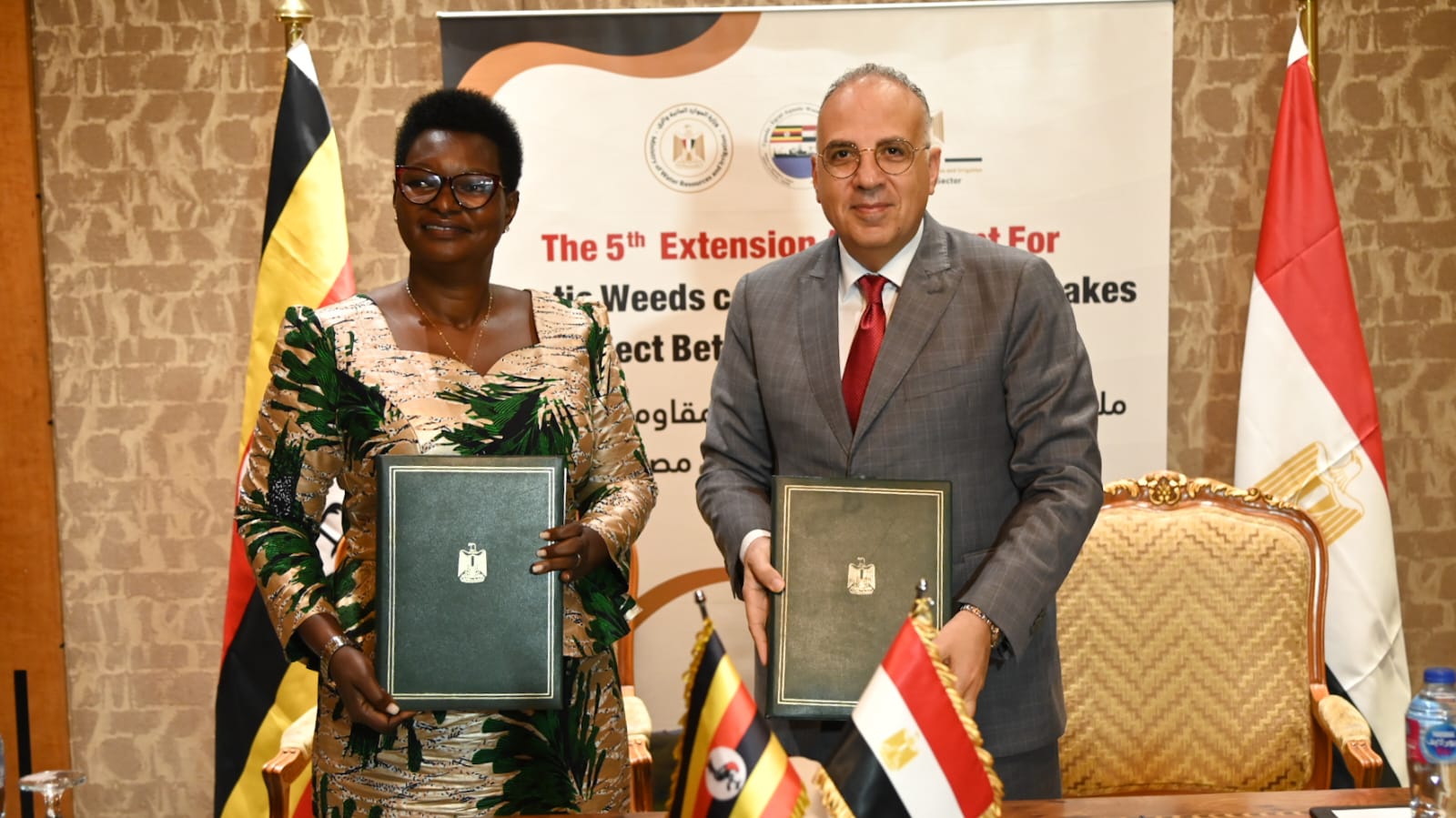Uganda and Egypt have formally signed an agreement for the Aquatic Weed Control Project during the 6th Edition of the Cairo Water Week in Cairo, Egypt, on November 1, 2023. This event marks a significant milestone in the ongoing collaboration between the two nations in addressing the persistent environmental challenge.
The signing ceremony featured Hellen Adoa, the Minister of State for Fisheries, representing Uganda, and Hani Sweilem, the Minister of Water Resources and Irrigation, representing Egypt. This memorandum of understanding (MOU) not only extends the project’s duration but also deepens the commitment of both nations to combat aquatic weeds in Uganda’s Great Lakes Region.
Minister Adoa expressed her appreciation for the extended partnership, stating, “On behalf of the Government of Uganda, I have this morning signed the 5th Extension Agreement for Aquatic Weeds Control under the Equatorial Lakes Project between Uganda and Egypt. This MOU will significantly contribute to addressing aquatic weeds in the Great Lakes Region of Uganda.”
This agreement is a significant step towards addressing the persistent issue of invasive water hyacinth in Uganda’s Great Lakes Region. This invasive plant has long threatened the region’s aquatic ecosystems, biodiversity, and the livelihoods of local communities. Water hyacinth spreads rapidly, obstructing waterways, disrupting fishing activities, and harming the overall health of the lakes and their surrounding ecosystems.
By extending their collaboration, Uganda and Egypt are taking a crucial step towards mitigating these ecological and economic challenges. The Aquatic Weed Control Project, established through bilateral cooperation, aims to reduce the impact of water hyacinth by implementing comprehensive control measures. These measures encompass biological, chemical, and mechanical control methods, as well as capacity building for local communities to sustainably manage and utilize the weed.
Let Us Build Your Online Success!
We are the experts in creating visually stunning and functional websites. With reliable hosting and exceptional customer support, we bring your vision to life. Join hundreds of happy clients who trust us!
Get Started Now📞 Call/WhatsApp: +256 207 800 192
The extended agreement reflects the unwavering commitment of both nations to continue their joint efforts in addressing this environmental challenge. It underscores the belief in mutual cooperation and the dedication of both nations to tackling shared environmental challenges.
The objectives of the Integrated Management of Invasive Aquatic Weeds include controlling invasive aquatic weeds by combining physical and biological control methods to minimize future residual impacts. Physical control methods involve manual and mechanical removal and the use of physical barriers like cables and booms. Biological control requires identifying suitable insect species for aquatic weed eradication, multiplying them, and releasing them in affected areas.
To achieve this objective, mechanical methods will be used for deep-rooted submerged weeds, followed by manual control methods, including the use of physical barriers. Biological control will complement manual control to ensure the project’s sustainability.

